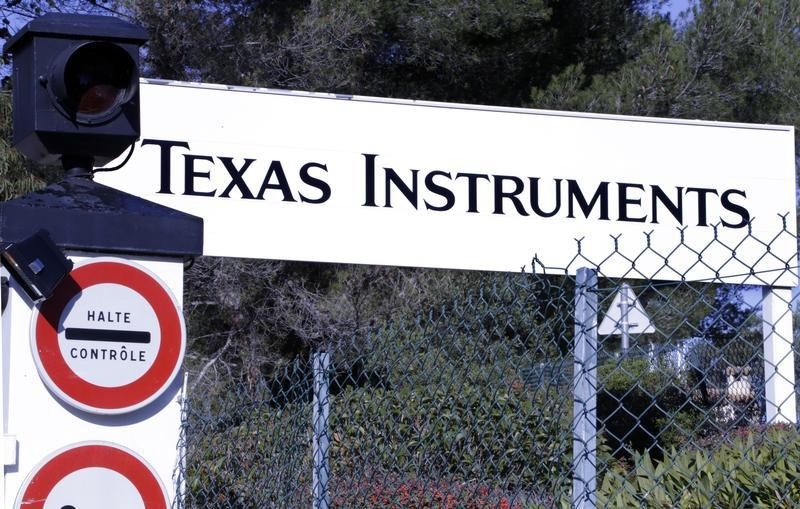Shares of Texas Instruments (NASDAQ:TXN) fell more than 4% in pre-open Wednesday after the chipmaker reported Q4 revenue and guidance that missed analysts’ estimates.
The chipmaker posted fourth-quarter earnings per share (EPS) of $1.49, compared to $2.13 in the year-ago period. Revenue came in at $4.08 billion, down 13% year-over-year (YoY), and below the consensus estimates of $4.13 billion.
Analog revenue stood at $3.12 billion in the quarter, down 12% YoY and above the expected $3.07 billion. Texas Instruments generated $752 million in embedded processing revenue, down 10% YoY and considerably below the projected $828.6 million.
The company reported an operating profit of $1.53 billion, down 30% YoY, while analysts estimated $1.56 billion. Capital expenditure totaled $1.15 billion in the period, 19% higher than in the year-ago quarter, and just below the estimated $1.16 billion.
The semiconductor manufacturer reported $2.96 billion in cash and cash equivalents, down 2.8% from a year earlier. Analysts were expecting $2.33 billion.
For the current quarter, TXN expects EPS to be in the range of 96c to $1.16, well below the consensus estimates of $1.42. Revenue is projected to land between $3.45 billion and $3.75 billion, also missing Wall Street’s estimates of $4.09 billion.
"TI's first quarter outlook is for revenue in the range of $3.45 billion to $3.75 billion and earnings per share between $0.96 and $1.16. We now expect our 2024 effective tax rate to be about 13%,” Haviv Ilan, Texas Instruments’s president and CEO said.
Bernstein reiterated an Underperform rating and a $140 per share price target on TXN.
"While we buy the argument to some extent that TXN should be well positioned once things (eventually) turn, it seems clear that the company’s financial profile will be very different from the way it was over the last cycle, with valuation (almost 28x our new 2025 estimate) that will likely take quite a bit of time to grow back into."
"We understand and appreciate the company’s strategy but struggle to see a catalyst for outperformance in the current scenario," analysts said in a note.
